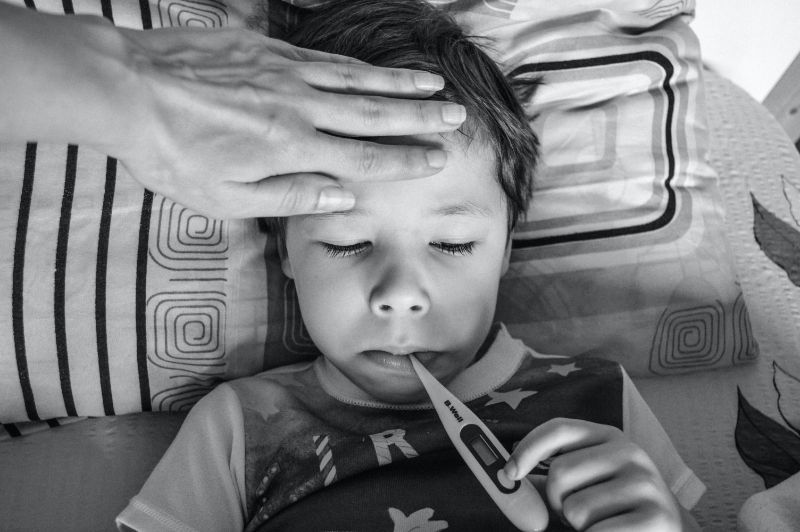As adults, we've all experienced the discomfort of fever at some point. But when it comes to our little ones, child fever can be a whole different and often scary. Fever in children is common and is typically a sign that their bodies are fighting off an infection.
However, it's crucial to understand that while some fevers can be managed at home, others require immediate medical attention. This blog aims to arm you with the knowledge to discern when a simple childhood fever crosses the line into a medical emergency.
Knowing what's normal is the first step in recognizing when something is off.
So, what's the typical body temperature for children? A child's body temperature can vary depending on the method used for measurement, but it usually hovers around 98.6°F (37°C). Slight fluctuations can occur due to factors like time of day, activity level, and age.
However, a rectal or ear temperature of 100.4°F (38°C) or higher generally indicates that your child has a fever.
Besides the telltale high temperature, how can you tell if your child has a fever? Common symptoms to watch out for include:
- Feeling hot to touch
- Increased thirst
- Lack of energy
- Loss of appetite
- General crankiness
Some kids might also complain of a headache, body aches, or chills.
Remember, these symptoms can also be signs of other illnesses, so monitoring your child closely and seeking medical advice if you're unsure is vital.
Now, let's delve into the critical signs that indicate it's time for an urgent care visit.
You should immediately seek medical help if your child has a fever and is less than three months old or if their fever is accompanied by symptoms like severe headache, difficulty breathing, persistent vomiting, confusion, a bulging soft spot on the head (in infants), or a rash.
Additionally, if your child's fever lasts more than a few days or rises despite medication, it's time for a trip to urgent care.
While it's essential to know when to seek professional help, there's a lot you can do to comfort your child and bring down a mild fever at home.
- Make sure your child gets plenty of rest and stays hydrated.
- It can be helpful to dress them in lightweight clothing and ensure their room is comfortably cool.
- Over-the-counter fever reducers like ibuprofen (for children over six months) or acetaminophen can also be used, but always make sure to follow the dosage instructions.
When you bring your child to urgent care for a fever, the medical team will first check vital signs like heart rate, breathing rate, and temperature.
They may also ask about symptoms, medical history, and medications your child takes. Diagnostic tests, such as blood tests or a throat swab, may be performed if necessary.
Once the cause of the fever has been determined, they will provide appropriate treatment and advice for home care.
Vaccinations are pivotal in preventing many illnesses that can cause child fever. Immunizations train the immune system to recognize and fight specific viruses and bacteria, thus reducing the risk of infection and subsequent fever.
It's crucial to follow the recommended vaccination schedule for your child to provide the best protection against these diseases.
Regular pediatric check-ups are another key component in fever management and overall child care. These visits allow your child's doctor to monitor their growth and development, administer necessary vaccinations, and address any health concerns promptly.
Regular check-ups also provide a valuable opportunity to discuss any worries about child fever and learn more about when to take a child to urgent care.
Is it normal for a child to have a fever after vaccination?
Yes, mild fever can be a common side effect of vaccinations and usually subsides within a day or two.
Can teething cause a fever in babies?
While some babies might slightly increase body temperature while teething, it's not typically high enough to be considered a fever.
When should I be worried about my child's fever?
You should seek medical help if your child's fever is persistently high, lasts more than a few days, or is accompanied by other severe symptoms, as discussed earlier.
Navigating a child's fever can be a daunting task for parents and caregivers. However, equipped with the right information and a keen eye for critical signs, you can promptly ensure your child receives the necessary care. Remember, it's always better to err on the side of caution when it comes to child care.
Are you worried about your child's fever? Do you need professional medical advice? At Carolina Urgent Care, we're here to help. We offer same-day appointments and accept walk-in patients. Don't hesitate to reach out – your child's health is our priority.


